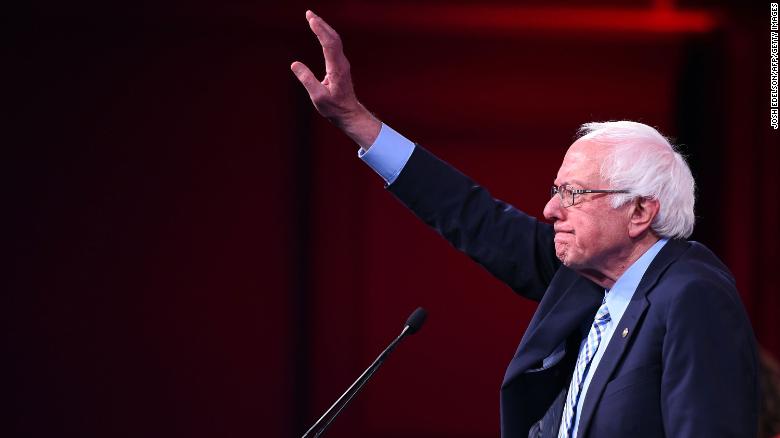
By Katherine Coble || News Editor
The nation’s first official primary kicked off last week in New Hampshire, where Democratic presidential hopefuls made their case to face Donald Trump in the general election. In contrast to Iowa’s chaotic caucus, results rolled in within an hour of polls closing and Bernie Sanders was declared the winner.
Sanders has long had a presence in the minds of New Hampshire Democrats, due to his time spent as the mayor of Burlington, Vermont and as a senator for Vermont – a neighboring state. In 2016, Sanders took 60% of the primary vote against Hillary Clinton. This year, battling against nine other candidates, he received 25.6% of the vote and earned nine delegates.
Sanders was closely followed by former South Bend, Indiana mayor Pete Buttigieg with 24.3% of the vote and an equal number of delegates. The two were separated by less than 4,000 votes. Both Sanders and Buttigieg have established themselves as strong frontrunners in a still unusually crowded and competitive race.
Perhaps the biggest surprise of the night came from Minnesota senator Amy Klobuchar, who earned 19.7% of the vote after positioning herself as a more experienced Midwestern candidate than Buttigieg. Klobuchar, who placed fifth in the Iowa caucuses and only picked up one delegate, now seems poised to fight with Buttigieg and Joe Biden for moderate, centrist Democrats in Nevada and South Carolina. She opened her Election Night speech to supporters by proclaiming, “I’m Amy Klobuchar, and I will beat Donald Trump.”
Senator Elizabeth Warren came in a disappointing fourth place, earning just 9.2% of the popular vote – too low of a threshold to pick up any of New Hampshire’s delegates. Her momentum from earlier in the race appears to have dissipated. Warren, a former Harvard Law School professor and Massachusetts native, clearly did not benefit from the ‘neighboring state’ bump associated with Sanders. Warren, who has attempted to straddle the line between her “big structural change” message of progressivism and her pitch as a unity candidate, has been largely quiet on the results. Instead her campaign appears to be pushing forward, despite financial concerns about their fundraising reported by the New York Times.
One of the most disappointing performances in New Hampshire came from former Vice President Joe Biden. Biden himself seemed prepared to falter: in a pre-election debate, he openly said “I took a hit in Iowa and I’ll probably take a hit here,” he warned. Biden even appeared to flee the state prior to polls closing, flying down early to South Carolina although their primary is not until the end of the month. Indeed, Biden’s debate prediction proved correct, as he received no delegates and took just 8.4% of the vote. Several political organizations including The Hill and Fox News have since referred to his campaign as being “on life support.”
The night was even more disappointing for Deval Patrick, Michael Bennett, and Andrew Yang, all of whom have withdrawn their candidacy in light of their performances. While Patrick and Bennett barely made waves in the crowded field, Yang surpassed expectations. The 45-year-old entrepreneur brought issues like Universal Basic Income and increased automation of labor into the Democratic conversation. In an illuminating interview with The Atlantic, Yang explained his decision to drop out by saying “I don’t want to take people’s money and time and support if I genuinely don’t think that we can contend and win.” He has also fueled continuing rumors of serving in a cabinet position, saying – in typically casual fashion – “You know, I’m not a d***.”
The Democratic race now heads to Nevada, where a caucus will be held on February 22. The Biden and Warren campaigns particularly need a strong performance to prove their sustainability. Buttigieg, too, hopes to show he can gain support with people of color, a major Democratic voting bloc. A poll released by FiveThirtyEight on February 12 has Sanders polling at 23.7%, Biden at 18.6%, Warren at 12.1%, Pete Buttigieg at 8.7%, Tom Steyer at 6.3%, and Amy Klobuchar at 3.9%. Nearly one-fifth of the Nevada electorate remains undecided. Only time will tell who can grab the attention of voters and successfully earn the Democratic nomination.
Senior Katherine Coble is the news editor. Her email is kcoble@fandm.edu.